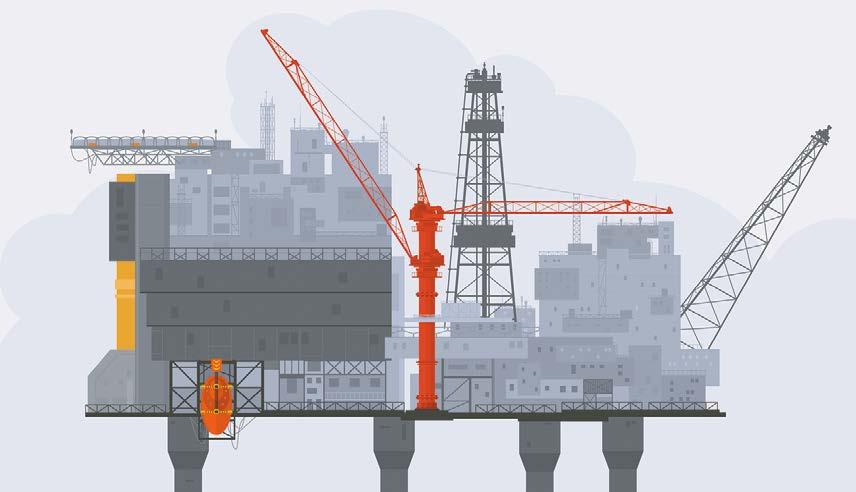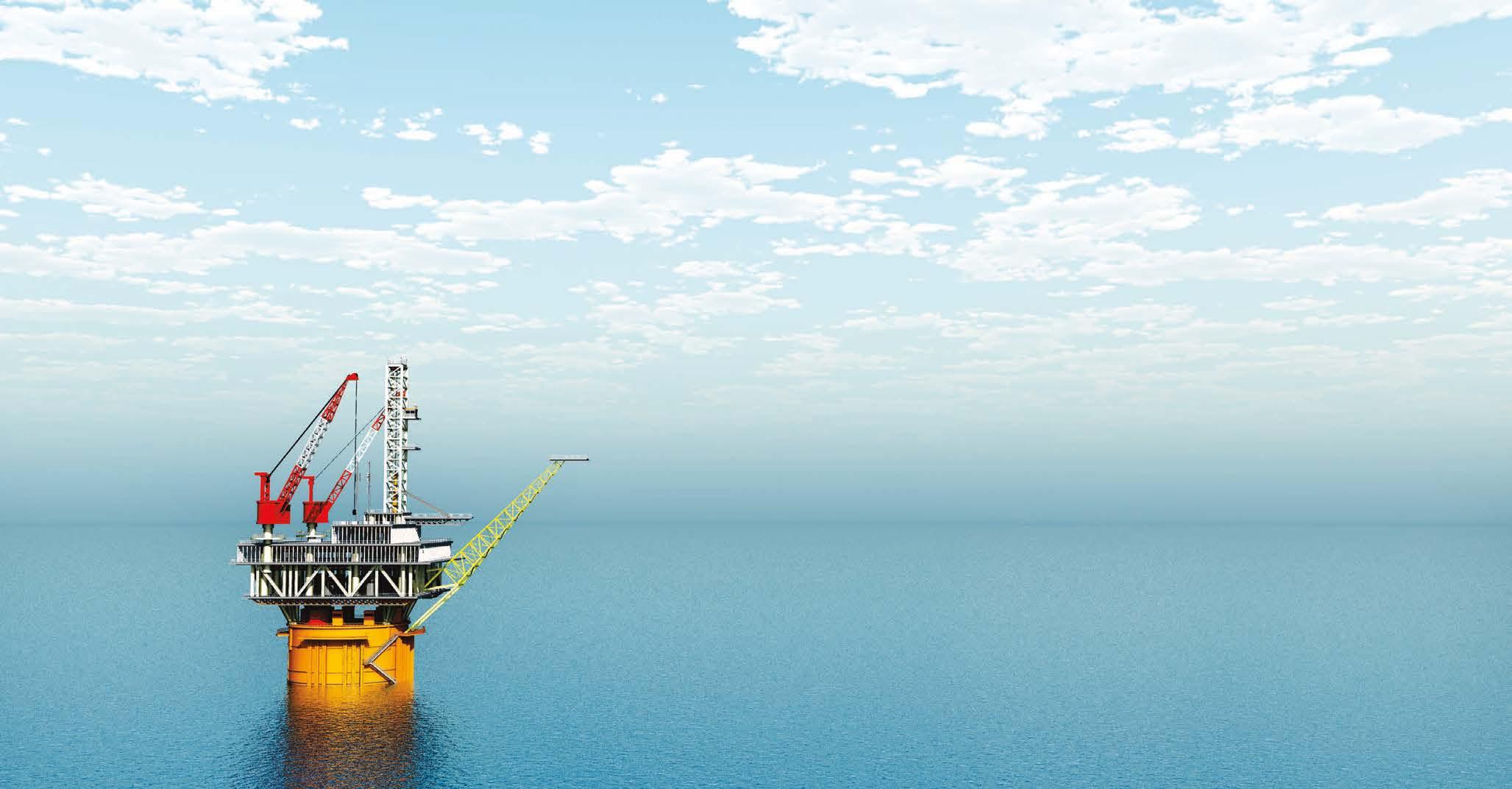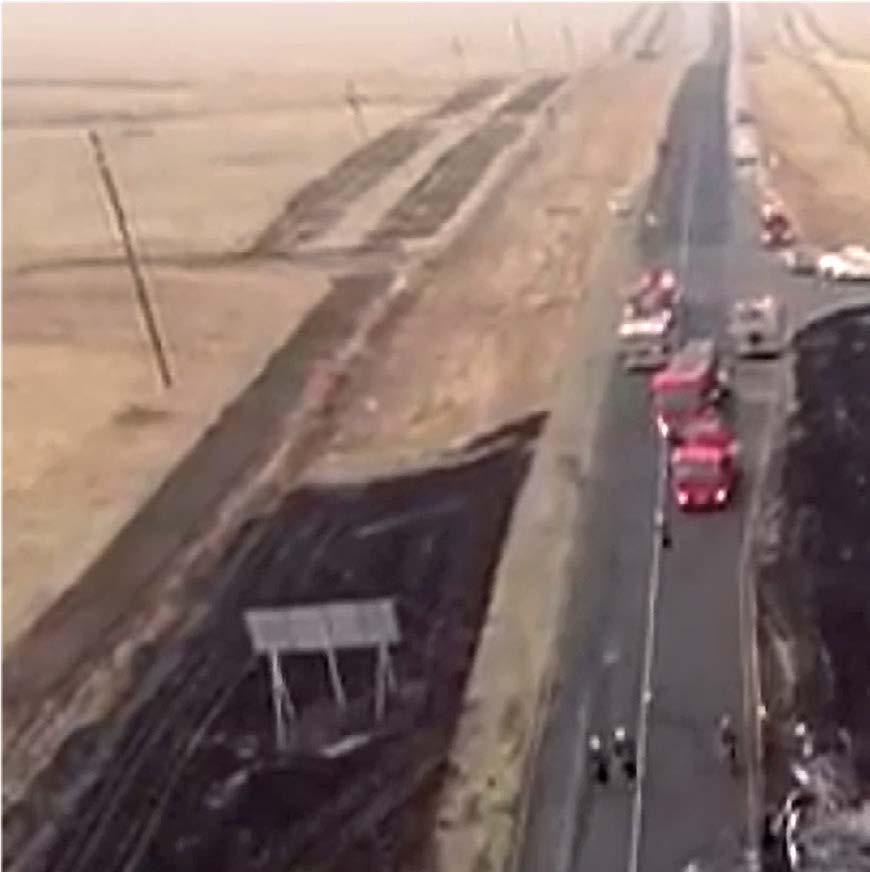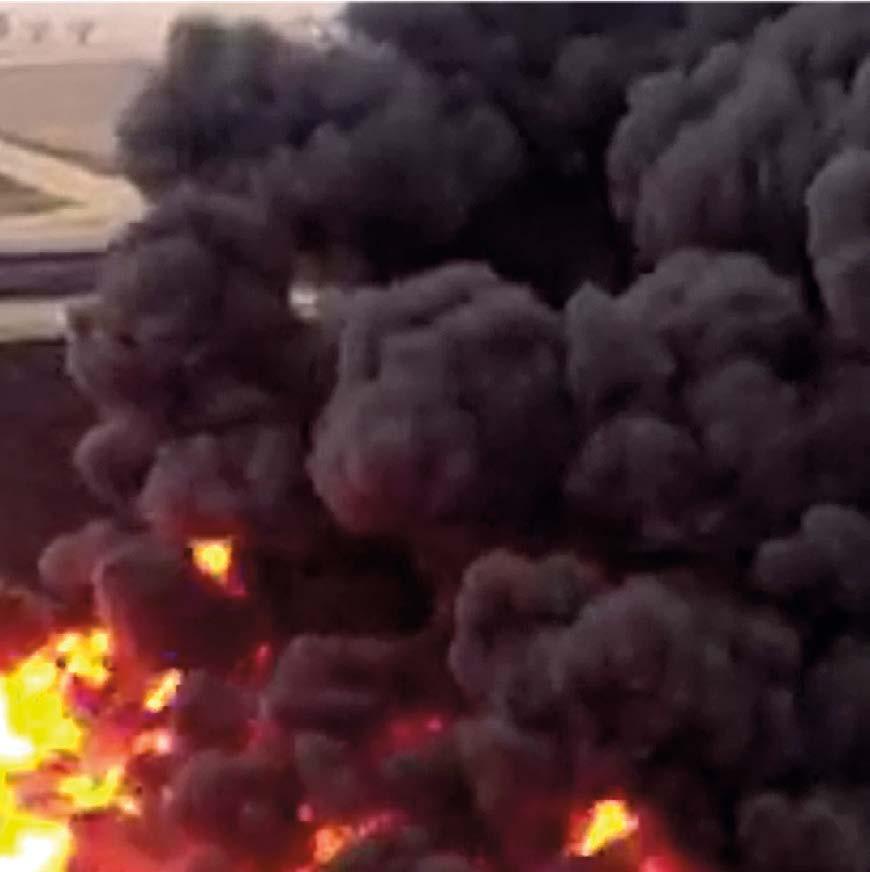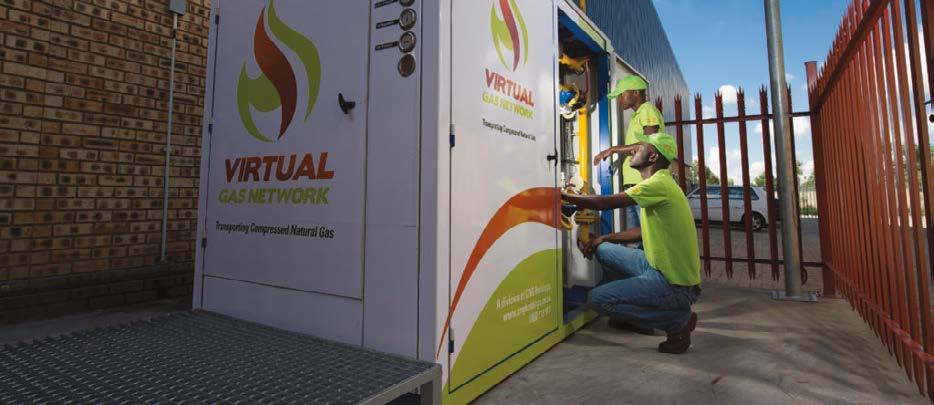
8 minute read
Oil and gas
Various types of gas are available as fuels.
Renergen, which owns rights to a field of liquified natural gas (LNG) in the Free State, has started taking orders for its product from logistics companies. Bulk Hauliers International Transport (BHIT) has signed an agreement to take LNG to fuel 50 of its trucks, which should lead to lower operating and maintenance costs.
Advertisement
South African Breweries is another client.
The first two dedicated filling stations will be Total stations in
Johannesburg and Durban that will be rebranded in green. One station is planned for Harrismith on the busy N3 highway which links the cities.
Delta Natural Gas (DNG) Energy announced in 2019 the rollout of 400 natural gas refuelling sites across South Africa with a focus on the taxi and logistics sectors. The first sites will be Johannesburg and Tshwane.
The Provincial Government of Gauteng has announced that it wants to take “decisive steps” to increase the availability and use of gas.
NGV Gas, a subsidiary of CNG Holdings, is promoting compressed natural gas (CNG) as a versatile alternative across all sectors. Another subsidiary, CNG Technology supplies equipment for filling stations and distributions, converts petrol and diesel-powered vehicles and advises companies on conversions.
The major economic sectors using gas are the metals sector and the chemical, pulp and paper sector. Brick and glass manufacturers are also big consumers. National policy is driving a switch to the use of gas. A national Gas Utilisation Master Plan (GUMP) is being developed.
Transnet Pipelines has completed a sophisticated new multiproduct pipeline (NMPP) between the coast and Gauteng which is bringing a range of products to the manufacturing heartland of South Africa. The company operates a 3 800km network of underground, high-pressure petroleum and gas pipelines throughout the eastern parts of South Africa.
The country’s biggest supplier of industrial heating fluids, FFS Refiners, supplies this product out of a plant at Chloorkop while the company’s Evander site is responsible for heavy fuel oils. Evander also has a tank with installed capacity of 8 500m³.
Egoli Gas has a pipeline network that extends over 1 200km in and around Johannesburg and the company has 7 500 domestic, industrial and commercial customers. Vopak completed a new storage terminal in Lesedi on the East Rand in 2017 to receive product from the NMPP. The company that owns Egoli Gas, Reatile, has a 30% stake in Vopak and a stake in CNG Holdings.
The regulator and promoter of oil and gas exploration in South Africa, Petroleum Agency South Africa, has awarded coalbedmethane-gas and natural gas rights in the provinces on Gauteng’s border, Free State and KwaZulu-Natal. ■
ONLINE RESOURCES
National Energy Regulator of South Africa: www.nersa.org.za South African Oil & Gas Alliance: www.saoga.org.za South African Petroleum Industry Association: www.sapia.co.za SECTOR INSIGHT Rebranded Total petrol stations will sell liquified natural gas.
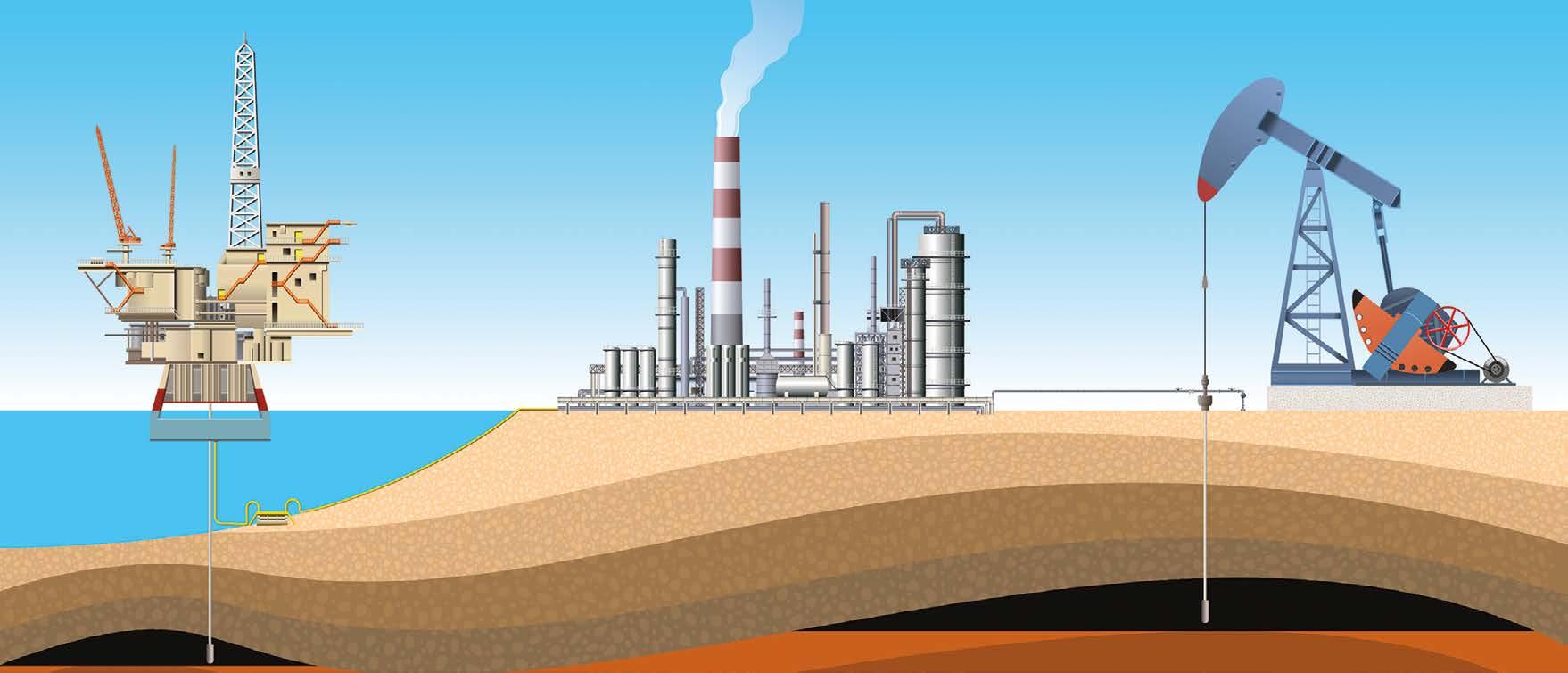
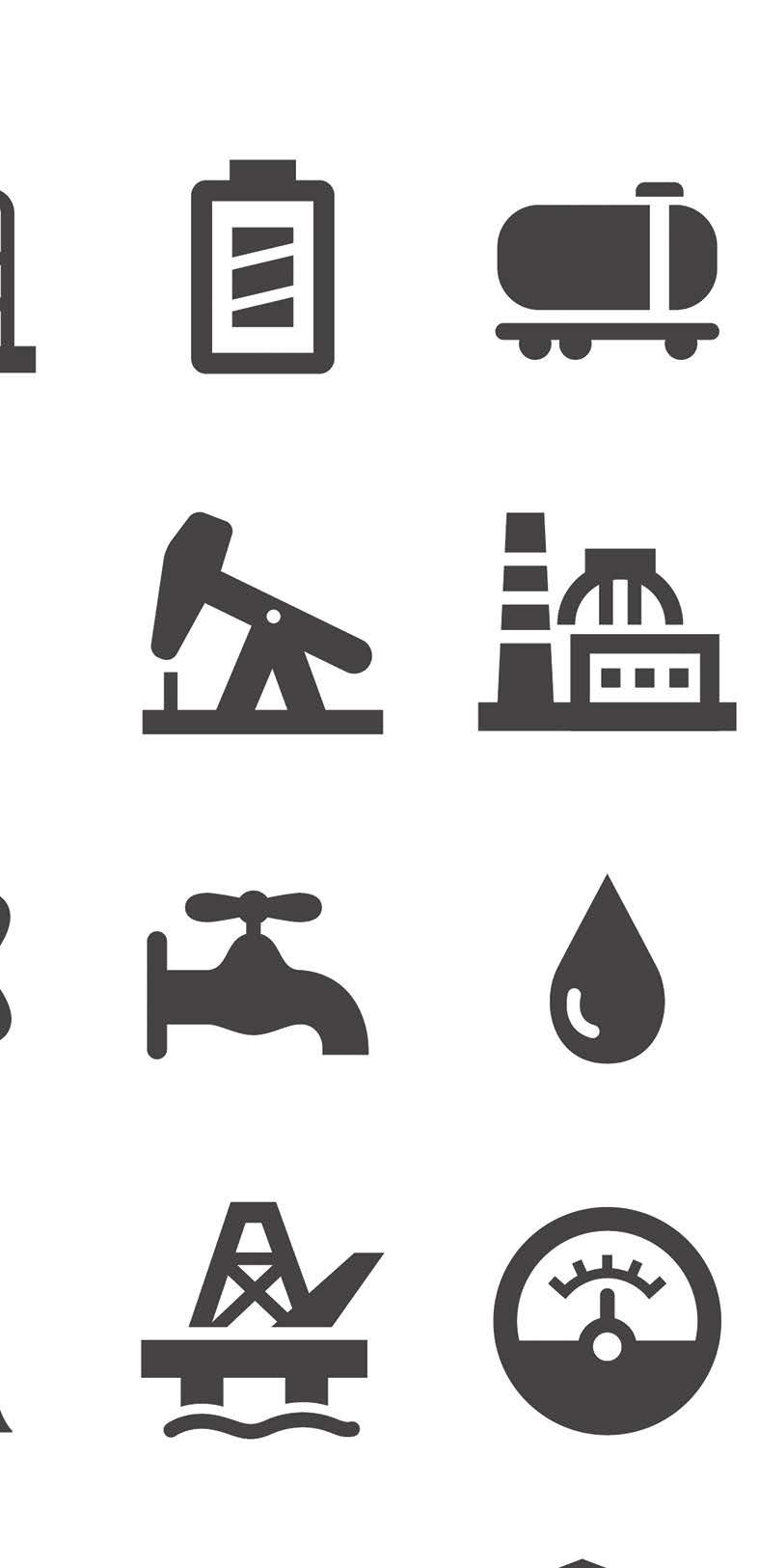
a key As stated in the National Development Plan (NDP), the government’s intention is to “enable exploratory drilling to identify economically recoverable coal seam and shale gas reserves, while environmental investigations will continue to ascertain whether sustainable exploitation of these resources is possible: “If gas reserves are proven and environmental concerns alleviated, then development of these resources and gas-to power projects should be fast-tracked.” The plan also calls for the need to incorporate a greater share of gas in South Africa’s energy mix, through importing liquefied natural gas (LNG), using shale gas if reserves prove commercial, and developing infrastruc-player in a vital sector ture for the import of LNG, mainly for power production, over the short to medium term. Petroleum Agency SA plays an important role in developing South Africa’s gas market by attracting qualified and competent companies to explore for gas in the country, as well as monitoring and regulating their activities. In addition to ensuring operators always comply with the law, a major area of focus is increasing the inclusion of historically disadvantaged South African-owned entities in the upstream industry. South Africa needs large discoveries of indigenous gas as well as fair access to opportunities and social licence to develop a healthy gas market. Currently, natural gas supplies about just 3% of South Africa’s primary energy. A significant challenge facing the development of a major gas market in South Africa is the extreme dominance of coal as a primary energy source, and industry’s historic reliance on coal-generated electricity. A lack of extensive gas transport and reticulation infrastructure goes hand in hand with this, while other challenges include uncertainty about volumes of indigenous gas available to industry; security of supply; switching and conversion costs; gas pricing; and negativity around the ongoing use of fossil fuels. End users require certainty before committing, while explorers look for a guaranteed market. On a more positive note, opportunities for gas lie in the realisation of South Africa’s NDP and the Integrated
South Africa’s oil and gas exploration and production sector offers an excellent investment

Resource Plan (IRP). Both call for indigenous hydrocarbons – conventional and unconventional – and independent power production to play an increasing role in the nation’s energy mix.
The national power utility also intends to replace coal-fired power stations with gas-fired counterparts, in line with the vision of the NDP. The advent of gas-fired power stations will represent a ready, indigenous market for operators that make discoveries of gas in South Africa, ensuring it will be far easier to monetise smaller discoveries that may otherwise have remained undeveloped. As custodian, Petroleum Agency SA ensures that companies applying for gas rights are vetted to make sure they are financially qualified and technically capable. Applicants also need to have a good track record in terms of oil and gas exploration activity, as well as regard for the environment. This applies to both local and foreign companies. Oil and gas exploration requires enormous capital outlay and can represent a risk to workers, communities and the environment. Applicants are therefore required to prove their capabilities and safety record and must carry insurance for environmental rehabilitation.
SOCIAL AND LABOUR PLANS In addition, all planned activities can only be carried out after completion of an environmental impact assessment and under an approved environmental management plan, after consultation with the public as well as interested and affected parties. Explorers are also required to contribute to skills development through the agency’s Upstream Training Trust. Oil and gas exploration in South Africa is regulated in terms of the Mineral and Petroleum Resources Development Act (MPRDA) of 2002, which stipulates that applicants for production rights are required to submit social and labour plans (SLPs) to assist in transforming the industry, promoting employment and advancing social and economic welfare in South Africa.
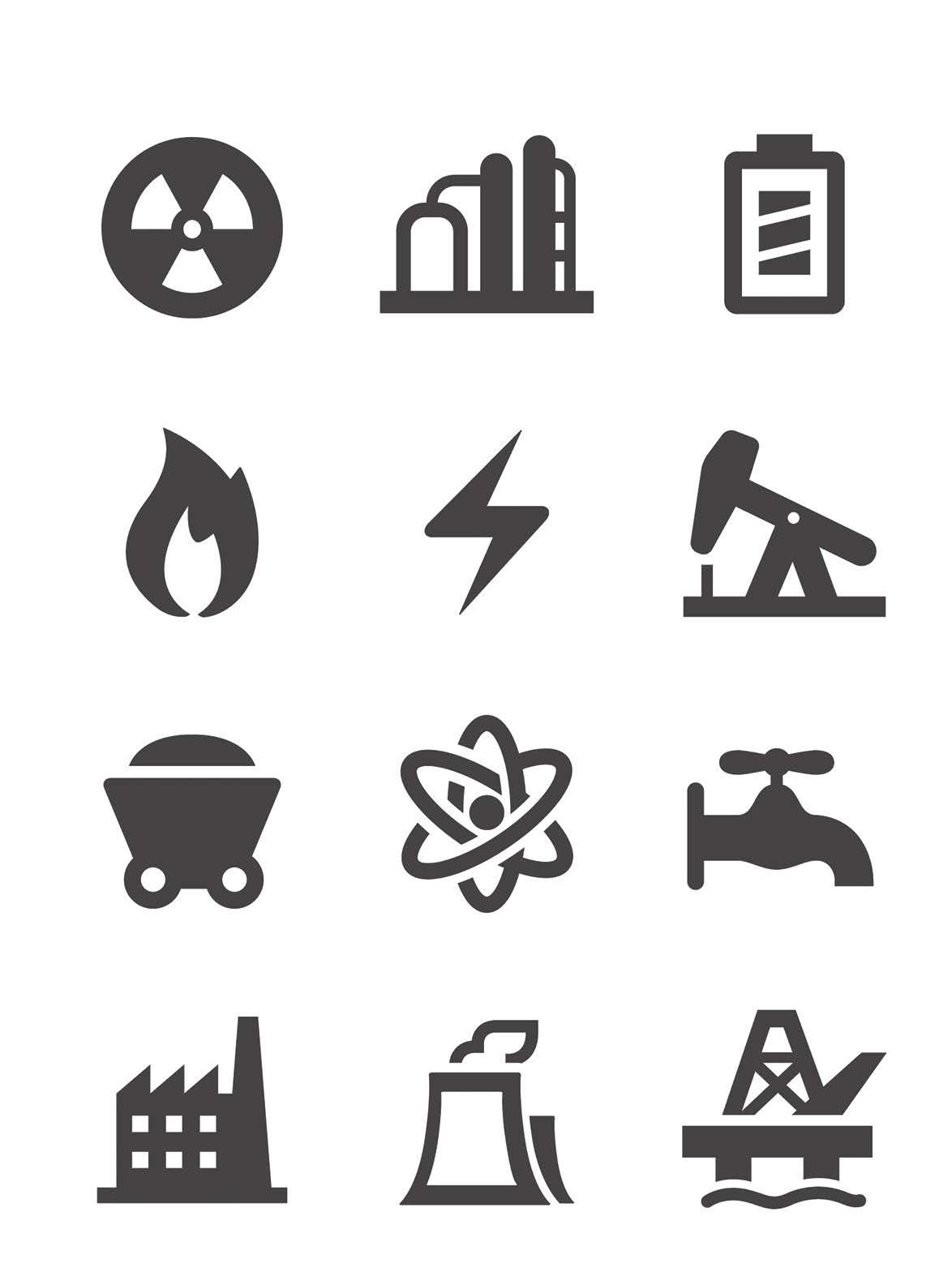
Applicants must develop and implement, where applicable, comprehensive SLPs that cover human resources-development programmes, community development, housing and living conditions, and employment equity. In addition to the MPRDA, other acts also regulate the sector – including the National Environmental Management Act, the Royalties Act, the Mining Titles Registration Act and the National Water Act. These acts and regulations have served the upstream industry well and are all in line with international standards.
Minister of Mineral Resources Gwede Mantashe and President Cyril Ramaphosa have recently stated that oil and gas exploration and production activities should have their own standalone legislation, separate from that applicable to hard mineral mining. This legislation is being drafted and the Agency is part of the team at the Department of Mineral Resources working on it. In today’s world, oil and gas remain the most critical of energy resources, and Petroleum Agency SA is in full support of those entering the South African oil and gas exploration and production industries. The Agency is fully committed to ensuring that our government and policy-makers sustain the sector for the benefit of all involved and will do everything in its power to advance the industry. A diverse upstream industry contributing to energy security through sustainable growth in exploration and development of oil and gas.
OUR MISSION
To promote, facilitate and regulate exploration and sustainable development of oil and gas contributing to energy security in South Africa.
ABOUT PETROLEUM AGENCY SA Petroleum Agency SA was established in 1999 by Ministerial directive and is mandated through the Mineral and Petroleum Resources Development Act, 2002 (Act No.28 of 2002) together with the National Environmental Management Act, 1998 (Act No.107 of 1998). These Acts provide for Petroleum Agency SA to evaluate and promote oil and gas potential exploration and production activities in South Africa, to regulate oil and gas exploration and the production industry and to archive all geotechnical data produced through oil and gas exploration. The Agency acts as an advisor to the government on issues regarding oil and gas exploration and production and carries out special projects at the request of the Minister.
